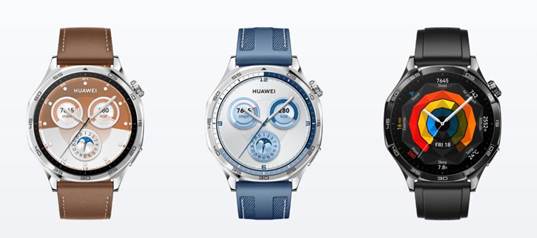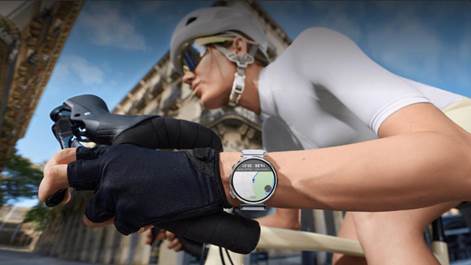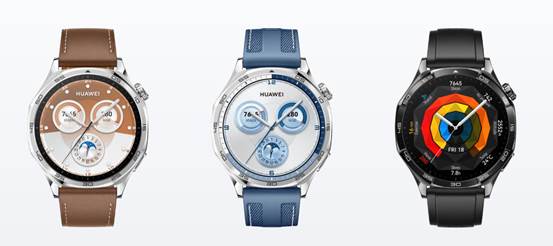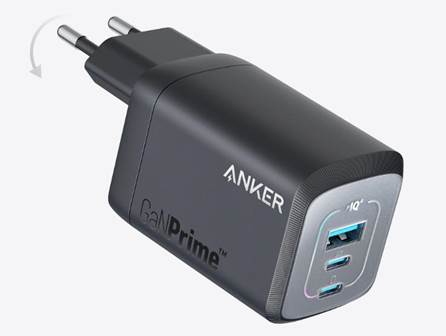AI-powered smartwatches
reshape the health monitoring landscape, merging technology with daily life.
They offer a new approach to tracking fitness, managing personal wellness, and
even detecting early signs of potential health issues. Through intelligent data
analytics, these devices go beyond traditional metrics, providing users with
personalized insights and recommendations. Popular models like the watch gt6 smartwatch demonstrate how
innovation continues to expand possibilities. This blog explores the
transformative role of AI in enhancing the functionality and effectiveness of
modern smartwatches.

How AI Transforms Smartwatch Health
Monitoring
From Basic Tracking To Intelligent
Insights
AI empowers smartwatches to move
beyond simple step counting to provide comprehensive health analyses. By
interpreting data from various sensors, AI offers insights into heart rates,
sleep patterns, and stress levels. These analyses help users understand their
health trends over time, facilitating informed decision-making. Smartwatches
now serve as intuitive guides, personal trainers, and even early warning
systems for potential health issues, all powered by machine learning.
The Role of Machine Learning in
Personal Health
Machine learning algorithms adapt
to the unique health profiles of individuals. By processing vast amounts of
personal data, these systems recognize patterns and predict health trends. This
continuous learning process enables smartwatches to offer increasingly accurate
health assessments. Users receive personalized feedback, which may include
adjusting workout intensity, modifying diet plans, or indicating the need for
medical consultations. Machine learning makes health monitoring more responsive
and precise.
Real-Time Monitoring And Early
Detection
AI enhances real-time monitoring
capabilities, allowing smartwatches to detect abnormalities swiftly. Heart
irregularities, unusual activity patterns, or sudden stress spikes can trigger
alerts. This immediacy is crucial for early intervention, potentially
preventing severe health consequences. By providing instant feedback, these
devices empower users to respond to health issues proactively. AI-driven
smartwatches serve as vigilant health guardians, ensuring users remain informed
and protected.
Key Features Of An AI-Powered
Smartwatch Ecosystem
Continuous Health And Fitness Tracking
AI-powered smartwatches excel in
seamless health and fitness tracking. They record a myriad of metrics such as
heart rate variability, oxygen saturation, and physical activity levels,
providing a holistic view of the user’s health. This continuous tracking helps
users maintain optimal health routines and spot deviations quickly.
Sophisticated algorithms process and present data in easy-to-understand
formats, enabling users to stay consistently informed about their physical
condition.

Personalized Wellness Recommendations
Through AI, smartwatches deliver
tailored wellness advice based on real-time health data. These devices analyze
activity patterns, dietary habits, and sleep cycles to offer custom lifestyle
and fitness recommendations. Users benefit from actionable insights, like
personalized workout plans or stress management techniques, crafted to align
with their unique health objectives. The smartwatch evolves into a personal
wellness coach, fostering healthier, balanced lifestyles.
Data Integration With Smart Health Apps
Connecting smartwatches to health
apps enhances the depth of insights available to users. AI facilitates seamless
data transfer and integration, ensuring comprehensive health profiles can be
maintained and analyzed. These integrations allow for consolidated tracking of
medical records, fitness data, and lifestyle logs. Users gain a unified view of
their health, maximizing the impact of AI-powered analytics and promoting a
coordinated approach to personal wellness.
Benefits of AI-Driven Smartwatch
Health Systems
Improved
Preventive Healthcare
AI-driven smartwatches are pivotal
in enhancing preventive healthcare measures. By consistently monitoring vital
signs and activity levels, these devices detect early symptoms and
irregularities. Users receive timely alerts, enabling them to seek medical
advice when needed and potentially avert serious health issues. The proactive
approach promoted by these smartwatches aligns with preventive healthcare
strategies, fostering a culture of vigilance and readiness in health
management.
Enhanced Lifestyle And Productivity
These smartwatches contribute
significantly to lifestyle improvement and increased productivity. By offering
valuable insights into sleep patterns, stress management, and activity levels,
they help users optimize their daily routines. Improved health metrics often
translate into greater energy and focus, impacting both personal and
professional life positively. Through personalized recommendations, wearers can
streamline their activities, boosting efficiency and elevating overall
well-being.
Empowering Users With Data Ownership
AI-driven smartwatches offer users
control over their health data. With easy access to information, wearers can
make informed decisions and manage their health proactively. The transparency
and ownership of personal data also foster trust in the technology. Users can
share their information with healthcare providers confidently when necessary,
enhancing the dialogue about treatment and care plans. This empowerment
strengthens the user’s role in their own health journey.
Future of AI in Smartwatch Health
Ecosystems
Predictive Analytics For Chronic
Diseases
Future advancements will see AI
enhancing predictive analytics for chronic disease management. By continuously
analyzing complex health data, smartwatches will predict disease onset and
progression more accurately. This capability can transform chronic disease
management, offering timely interventions and personalized treatment plans.
AI-driven predictive analysis positions smartwatches as pivotal tools in
reducing healthcare burdens and improving patient outcomes.
Expanding Connectivity With IoT Devices
The Internet of Things (IoT)
broadens the scope of AI in smartwatch ecosystems. Future integrations will
enable smartwatches to communicate with other IoT devices, like smart
appliances or medical equipment, creating comprehensive health monitoring networks.
This interconnectedness will not only enhance health outcomes but also
streamline the user’s lifestyle, providing more tailored and seamless
experiences. Expanding IoT applications will redefine personal wellness
management.
Ethical Use of AI in Personal
Health Data
The ethical handling of health data
remains crucial as AI capabilities advance. As smartwatches gather vast amounts
of personal data, ensuring privacy and data protection is paramount. Developers
must prioritize ethical standards, allowing users to have control over their
information while maintaining transparency in its use. Trust in AI technologies
hinges on robust security measures and user consent, ensuring these innovations
continue to empower rather than exploit individuals.
Conclusion
AI-driven
smartwatches represent a revolution in personal health monitoring,
fundamentally transforming how users engage with their fitness and wellness
every single day. By offering intelligent insights, real-time alerts, and
personalized recommendations, these devices empower individuals to take
proactive charge of their long-term health. As technology progresses,
smartwatches will integrate more seamlessly with IoT, enhancing connectivity,
predictive capabilities, and lifestyle convenience. The ethical use of data
will remain a cornerstone, ensuring the trust, transparency, and overall
effectiveness of AI in modern personal health monitoring.



